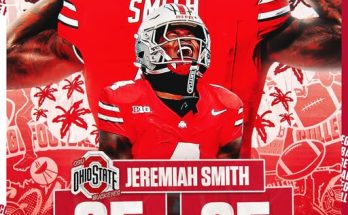In the high-stakes world of professional darts, where precision and mental fortitude are paramount, recent tensions have emerged between two prominent figures: Michael van Gerwen, a seasoned champion, and Luke Littler, an 18-year-old prodigy who has rapidly ascended to the sport’s upper echelons. The friction between these athletes underscores the challenges inherent in balancing youthful exuberance with the expectations of professional conduct.
The Incident: A Breach of Professionalism
The controversy began when Littler overslept and arrived 45 minutes late to a scheduled photoshoot in Belfast, preceding the Premier League Darts event. This delay left van Gerwen and other competitors waiting, leading to palpable frustration among his peers. Van Gerwen did not mince words in his critique, stating, “He’s not a baby anymore.”
This incident is particularly noteworthy given Littler’s meteoric rise in the darts community. At just 18, he has already secured a world championship title, a feat that has garnered him significant attention and acclaim. However, with such rapid success comes heightened scrutiny, and the expectations for professionalism are magnified.
Van Gerwen’s Perspective: Upholding Professional Standards
Michael van Gerwen, a three-time world champion, has long been a stalwart in the darts community, known for his dedication and professionalism. His criticism of Littler stems from a belief that with success comes responsibility. He emphasized that Littler’s actions were unprofessional and that he should no longer be treated with leniency due to his age or newcomer status.
Van Gerwen’s comments reflect a broader sentiment within professional sports: that emerging talents must quickly adapt to the rigors and expectations of their respective fields. The Dutchman’s remarks suggest a desire to see Littler embrace the responsibilities that accompany his newfound status.
Littler’s Response: A Display of Maturity
In the face of criticism, Littler demonstrated composure and maturity. He acknowledged his mistake, admitting fault for the delay, and recognized the importance of punctuality and responsibility. This self-awareness is indicative of his potential to grow not only as a player but also as a professional.
Moreover, during his Premier League Darts match against van Gerwen, when the crowd began to boo his opponent, Littler gestured for them to stop, emphasizing fair play and respect. This act of sportsmanship further highlights his understanding of the values that underpin professional sports.
The Broader Implications: Navigating Success and Scrutiny
Littler’s rapid ascent in the darts world has not only brought him accolades but also increased scrutiny. His performances have been exceptional, with record-breaking averages and significant victories, including a win over van Gerwen in the World Championship final.
However, with such success comes the challenge of maintaining professionalism and managing public perception. The incident in Belfast serves as a reminder that talent must be complemented by discipline and respect for the commitments inherent in professional sports.
The Path Forward: Learning and Growth
The interaction between van Gerwen and Littler offers valuable lessons for both the individuals involved and the broader sporting community. For Littler, it’s an opportunity to reflect on the responsibilities that accompany his rapid rise and to commit to the standards expected of a world champion.
For van Gerwen, the situation underscores the importance of mentorship and the role experienced athletes play in guiding emerging talents. While his criticism was pointed, it also highlights a desire to uphold the integrity of the sport and ensure that its future stars are well-prepared for the challenges ahead.
Conclusion
The dynamics between Michael van Gerwen and Luke Littler encapsulate the tensions that can arise when youthful talent intersects with established professionalism. As Littler continues his career, the lessons from this incident will likely serve him well, reinforcing the importance of responsibility, respect, and the continuous pursuit of excellence.
In the ever-evolving world of professional darts, such moments of conflict and resolution contribute to the growth and maturation of the sport, ensuring that its champions not only excel in competition but also embody the values that define true sportsmanship.
The Tradition of Professionalism in Darts
Darts has long been a sport defined by not just skill and precision but also discipline and respect among its top competitors. The game’s evolution from a pub pastime to a global professional sport has introduced new standards of professionalism, with high expectations placed upon players.
Legends such as Phil Taylor, Raymond van Barneveld, and even Michael van Gerwen himself have played pivotal roles in shaping these expectations. Taylor, arguably the greatest darts player of all time, was known for his intense focus and strict adherence to professional conduct. Players who followed his era, including van Gerwen, learned that success in darts was about more than just throwing a perfect 180—it was also about maintaining a work ethic that demonstrated dedication to the sport.
Van Gerwen, now one of the sport’s modern icons, came into the professional circuit as a young, fiery talent but quickly adapted to the demands of professionalism. His journey serves as a blueprint for rising stars like Littler, who must balance talent with the demands of a professional career.
The reaction to Littler’s lateness from senior players is not about resentment but rather about ensuring that the game’s future remains in good hands. When van Gerwen said, “He is not a baby anymore,” he was sending a message that expectations must rise in tandem with Littler’s success.
Young Talents Changing the Game
Luke Littler is not the first teenage sensation in darts, but he is arguably the most hyped in recent memory. His incredible run at the PDC World Championship in 2023 turned him into a household name, with mainstream media and casual fans suddenly paying attention to a sport they may not have followed closely before.
What makes Littler unique is his raw confidence. Unlike many young players who take time to settle into the big leagues, he has shown he can go toe-to-toe with the best, including van Gerwen, Gerwyn Price, and Peter Wright.
However, the challenge with young talents reaching stardom early is learning how to manage the pressures of fame. Many athletes across different sports have struggled with this—whether it’s football, tennis, or even snooker, young stars often face scrutiny that tests their mental strength.
For Littler, incidents like the one in Belfast are learning experiences. The fact that he acknowledged his mistake and moved on shows his ability to adapt, which is an important trait for any long-term success story.
The Psychological Battle in Darts
Darts is as much a mental game as it is a technical one. Players are constantly battling pressure, expectation, and the psychological warfare that occurs during matches.
Michael van Gerwen, as a seasoned competitor, is a master at mind games. His criticism of Littler could be interpreted as both a genuine concern for professionalism and a strategic attempt to test Littler’s mental resilience.
Many players use verbal and psychological tactics to unsettle opponents. Phil Taylor was known for his intimidating presence at the oche, while Gary Anderson and Peter Wright have their own ways of unsettling rivals. Van Gerwen’s words may have been a calculated move to see how Littler responds under pressure.
So far, Littler has shown he can handle such pressure. His ability to brush off criticism, remain focused, and continue performing at a high level indicates that he has the mental fortitude required to compete with the best.
What the Future Holds for Littler and Van Gerwen
As Littler continues to develop, his career will likely be defined by his ability to learn from moments like this. If he can maintain his discipline and professionalism while continuing to improve his game, he could very well become one of the dominant players of the next decade.
Michael van Gerwen, meanwhile, remains one of the sport’s most accomplished players. While his prime years may have passed, he is still an elite competitor capable of winning major titles. His role in the sport may transition into that of a mentor and leader—someone who helps shape the next generation while still competing at the highest level.
Their rivalry is one that fans should look forward to for years to come. If handled well, it could become one of the defining narratives of modern darts—a battle between an experienced champion and a rising superstar.
Conclusion: A Necessary Wake-Up Call
Van Gerwen’s criticism of Littler may seem harsh to some, but it serves as an important lesson. In professional sports, talent alone is not enough—discipline, respect, and professionalism matter just as much.
Littler has already shown he has the ability to dominate on the board, but how he handles moments like these will define his legacy. The fact that he accepted responsibility for his mistake and remained composed during matches suggests that he is on the right track.
As darts continues to grow in popularity, moments like these remind us why it is a fascinating sport—not just because of the action on the board but because of the personal and psychological battles that unfold behind the scenes.
Both Littler and van Gerwen have roles to play in shaping the future of the sport, and their rivalry could become one of the most exciting in years to come. The key takeaway from this incident is simple: great talent must be matched with great responsibility. Littler has the potential to be a generational star, but professionalism will be a crucial part of his journey.
In the end, this is not just a clash of egos—it’s a necessary growing pain for a young superstar stepping into the world of professional darts.



